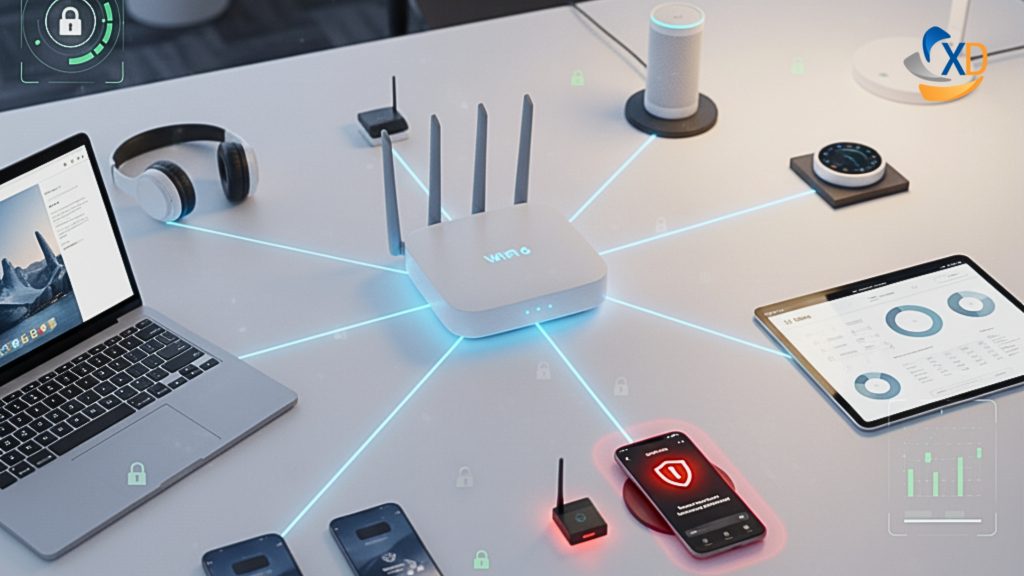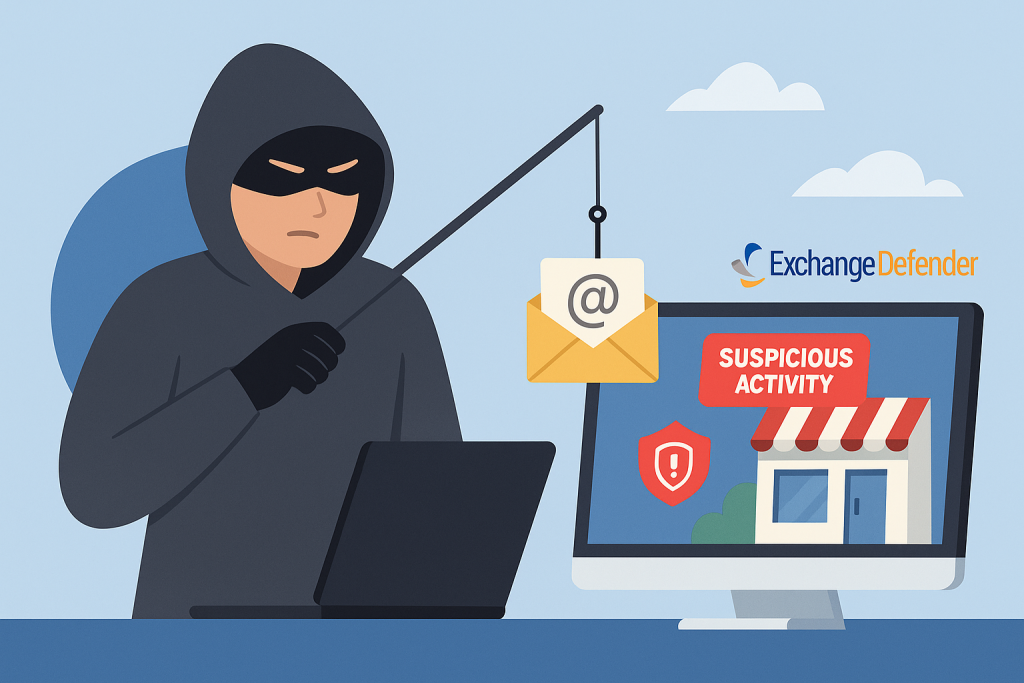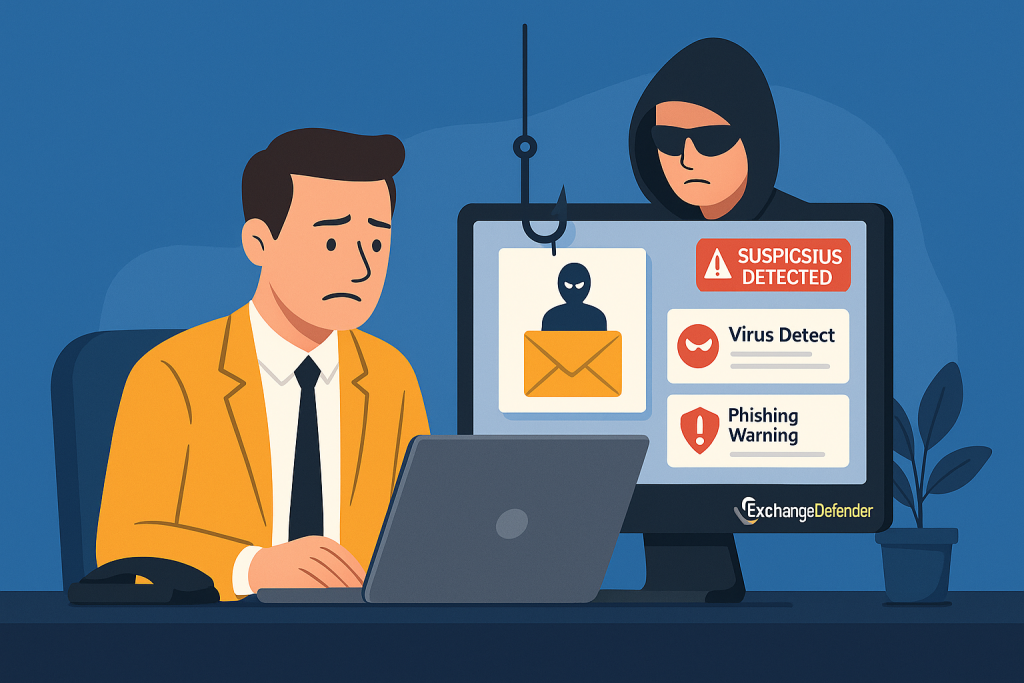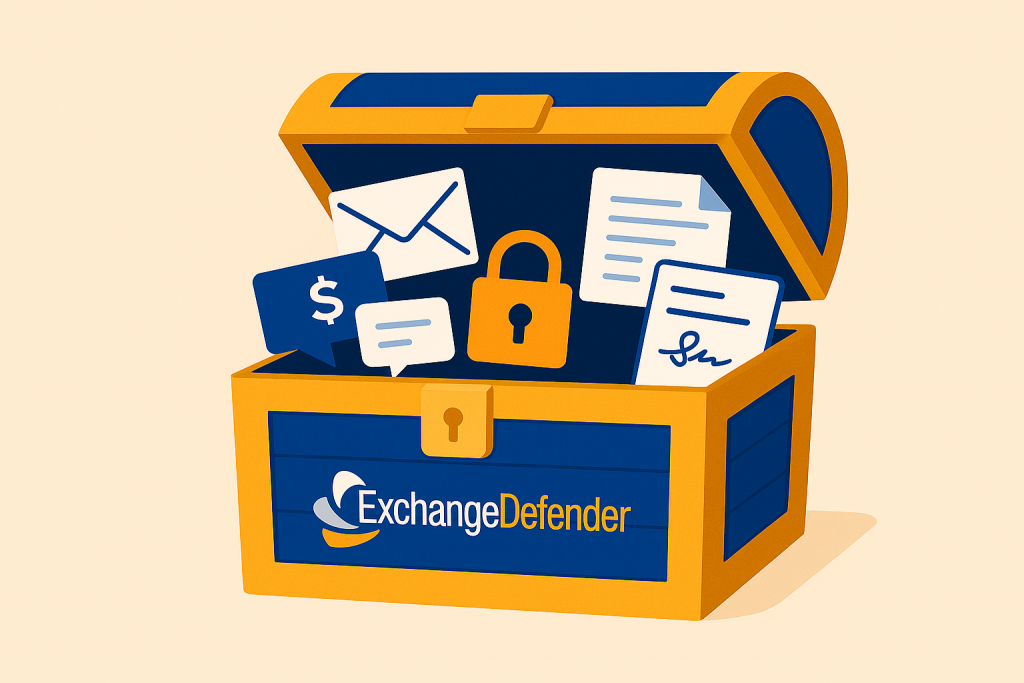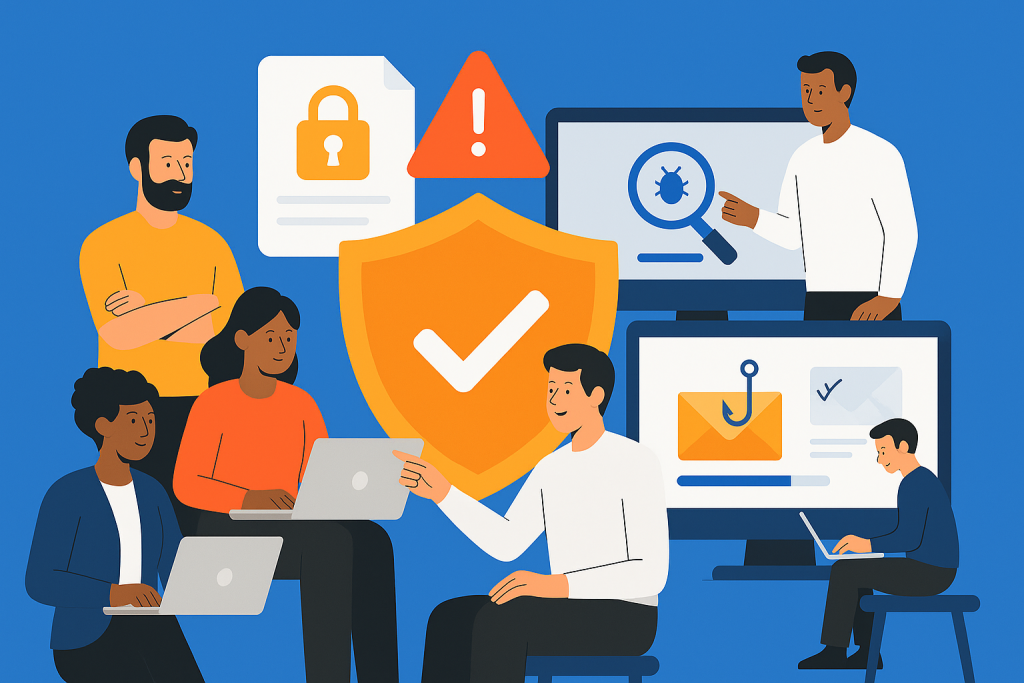The Real ROI of Hosted Exchange for Small Businesses

Let’s be real for a second: email is the unsung hero of your business. It’s how you land clients, keep projects moving, schedule meetings, and occasionally squash drama in a CC’d thread. So when it comes to business email, you don’t want “good enough”—you want rock solid.
That’s where Hosted Exchange earns its keep. It’s not just another email solution—it’s a smart investment. And today, we’re breaking down the real return on investment (ROI) for small businesses.
Predictable Costs, Fewer Surprises
Unlike self-hosted email or piecing together free tools, Hosted Exchange gives you flat, predictable monthly pricing. No surprise server costs, no licensing gymnastics, and no stress when your email traffic spikes.
Real ROI:
💰 Budget-friendly, especially when you factor in the cost of downtime (more on that in a sec).
Uptime That Works Harder Than You Do
You know what’s more expensive than email hosting? Email downtime. Missed deals, frustrated clients, and a flurry of “Did you get my email?” messages.
With Hosted Exchange, you’re backed by 99.999% uptime and ExchangeDefender’s rock-solid infrastructure.
Real ROI:
🕒 You’re not paying employees to sit around waiting for email to come back online.
Enterprise-Grade Security… Without the Enterprise Budget
Small businesses are prime targets for phishing, spoofing, and cyberattacks. Hosted Exchange comes bundled with ExchangeDefender’s advanced email security, including anti-virus, anti-spam, and phishing protection.
Real ROI:
🔐 One email breach can cost thousands—so prevention literally pays for itself.
Productivity on Every Device
Hosted Exchange syncs across desktop, mobile, and web. Your team can access calendars, contacts, and email from anywhere—without clunky VPNs or risky third-party apps.
Real ROI:
📈 More mobility = faster communication = more things getting done.
IT Relief: Let Your Team Focus on Bigger Things
With Hosted Exchange, there’s no need to babysit servers or troubleshoot pop3 errors. ExchangeDefender manages the backend, so your IT person (or outsourced team) can focus on strategic projects—not putting out email fires.
Real ROI:
🧯 Less downtime, fewer help desk tickets, and a more productive IT team.
Whether you’re a team of 3 or 300, Hosted Exchange delivers the kind of value, security, and peace of mind that free or DIY email just can’t match. It’s professional-grade email for businesses that are serious about growing—and protecting—their brand.
Ready to see the ROI in action?
Check out ExchangeDefender’s Hosted Exchange plans and discover just how easy (and affordable) upgrading your email can be.
Why Email Security Isn’t Optional Anymore (Even for Small Businesses)
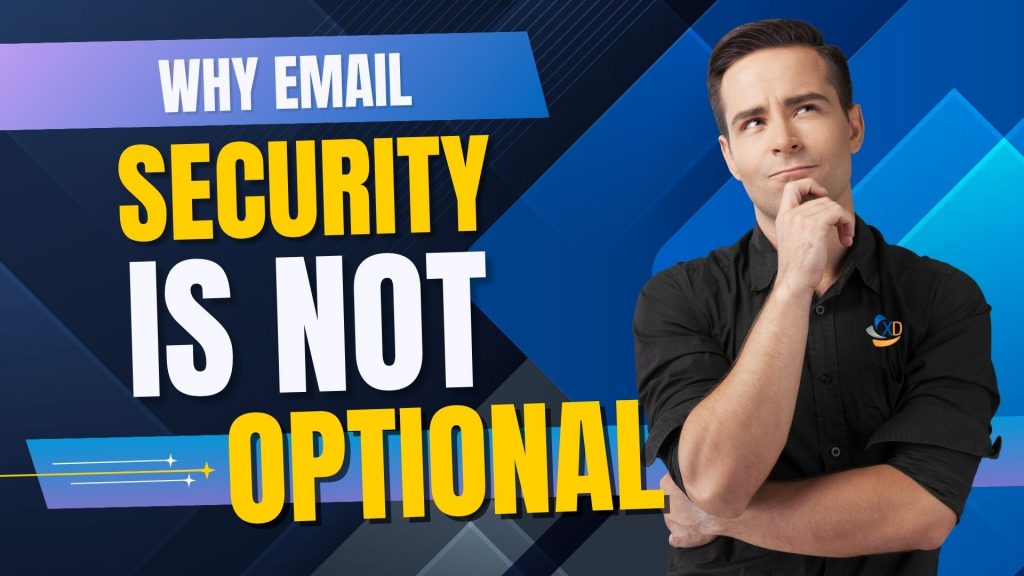
Once upon a time, email security was something only big corporations worried about—firewalls, encryption, threat detection… it all sounded like enterprise stuff.
But those days? Long gone.
If your business has an email address (and let’s be honest, who doesn’t?), you’re already a target. And the bad guys? They’re counting on you thinking security is “someone else’s problem.”
Let’s break down why email security is no longer optional—especially for small businesses.
1. Small Businesses Are Easy Targets
Cybercriminals know that smaller companies don’t always have the time, money, or resources to invest in advanced security tools. That’s exactly why they get hit more often.
Think of it this way: would a burglar go after Fort Knox… or the house with the front door wide open?
2. Phishing Scams Are Smarter (and Meaner)
Today’s phishing emails don’t look like Nigerian prince spam. They’re clean. Branded. Personalized.
They might come from what looks like your vendor, your CEO, or even your bank.
They want you to click the link, download the invoice, or reset your password.
And they’re sneaky good at it.
That’s why real-time threat detection and phishing filters are essential—not just “nice to have.”
3. Email Holds the Keys to Your Business
Think about it: your inbox is a treasure chest of…
- Client communications
- Invoices and payment links
- Internal documents
- Credentials and logins
- Contracts, quotes, and private notes
If someone gains access to your email, they don’t just read your messages—they own your business operations. And the recovery costs (both financially and reputation-wise) are brutal.
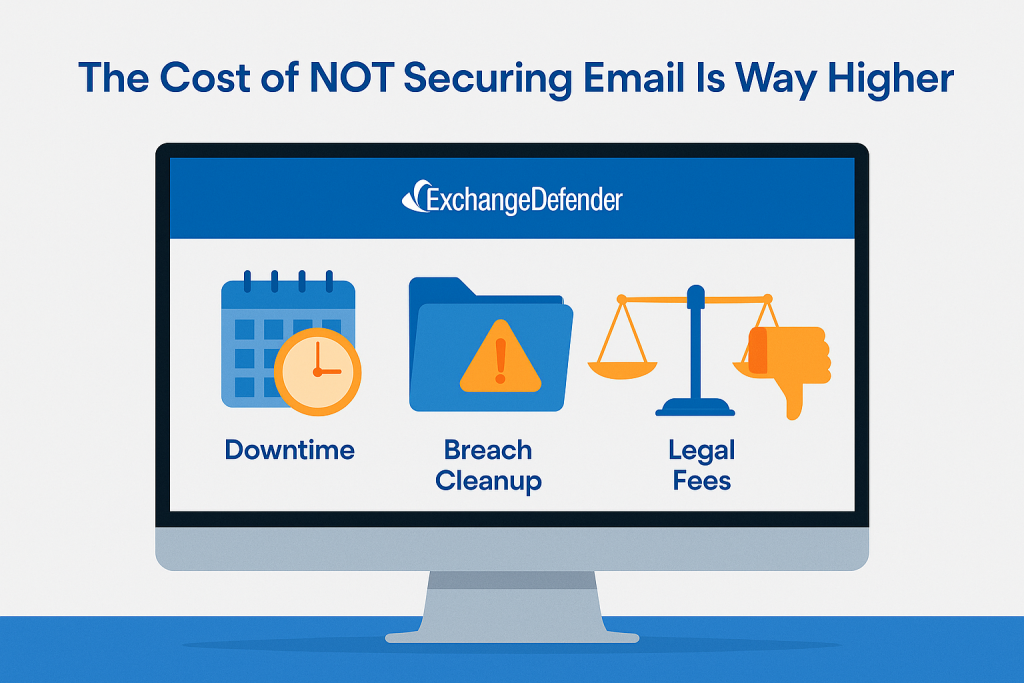
4. The Cost of NOT Securing Email Is Way Higher
Sure, tools like ExchangeDefender cost money. But do you know what costs more?
- Downtime
- Breach cleanup
- Legal fees
- Lost client trust
Email security is no longer a cost center—it’s a business continuity solution.
5. The Right Tools Make Security Simple
You don’t need to hire a team of security experts. ExchangeDefender helps small businesses stay protected with:
✅ Spam + phishing filters
✅ Email encryption
✅ Real-time malware scanning
✅ Quarantine reports + trusted sender controls
✅ Simulated phishing training
✅ 24/7 monitoring + support
It’s not just about defense—it’s about peace of mind.
Your email is your front door. Lock it.
Small business or not, today’s threats are real—and relentless. But with the right protection in place, you can focus on growing your business instead of chasing down security fires.
🔐 Want to see how ExchangeDefender can keep your email secure? Let’s talk.
Tired of Vendor Headaches? Why MSPs Choose ExchangeDefender for Streamlined Support
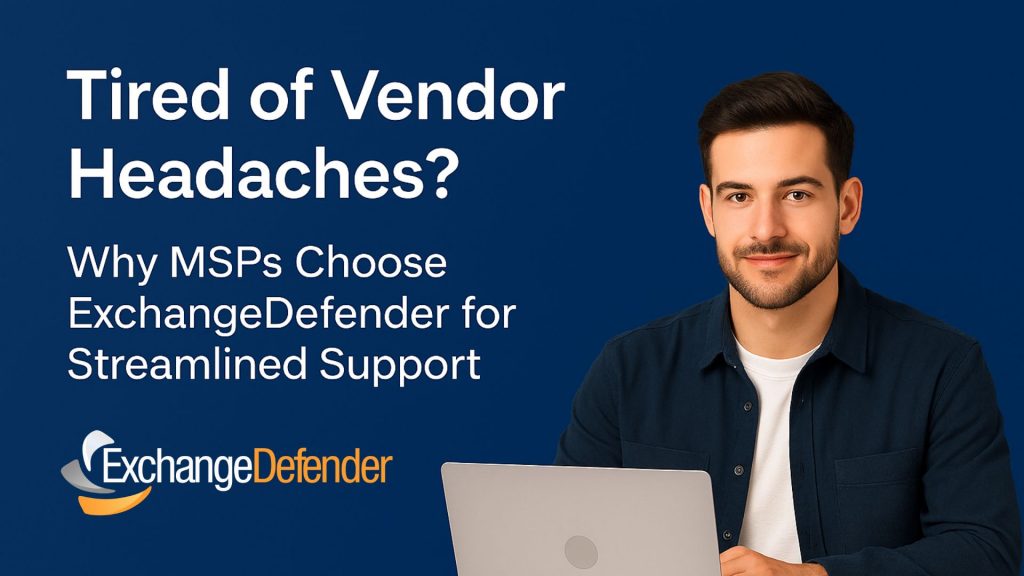
Let’s be honest: managing vendors can feel like babysitting a circus. You’re juggling tickets, waiting on “escalations,” and explaining the same problem five different times—while your client is breathing down your neck asking, “Is it fixed yet?”
Sound familiar?
That’s exactly why so many MSPs are switching to ExchangeDefender—not just for rock-solid email security, but for support that actually supports you.
We Know What MSPs Need—Because We’ve Been There
ExchangeDefender was built with MSPs in mind from day one. That means:
- Fast, no-nonsense support
- Clear escalation paths
- A team that understands how you work
No more battling a clueless Tier 1 rep reading from a script. When you call or chat with us, you’re talking to someone who gets it—and gets moving.
Less Waiting, More Solving
Other vendors? You submit a ticket… it disappears into the void.
With ExchangeDefender:
- You get status updates, not silence
- You can chat with a real person, not a bot
- And when there’s an issue, we’re proactive, not reactive
Because your reputation’s on the line, and we treat it like our own.
Partner-First, Not Product-First
Most vendors focus on their platform. We focus on your business.
That means:
- White-labeled portals to make you look good
- Multi-tenant dashboards that don’t require a PhD to use
- Sales and marketing support to help you grow—not just survive
When we help you win, we win. Simple as that.
What Our Partners Say
“We cut down support tickets by over 50% after switching to ExchangeDefender.”
— A Real-Life, Much-Happier MSP
“I don’t have to explain the same issue 3 times. They just get it—and fix it.”
— Another Grateful IT Pro

The Bottom Line
If you’re tired of chasing down support teams and patching together vendor chaos, it might be time to try something built for you.
💡 With ExchangeDefender, you get:
- Powerful email security & continuity
- End-user tools that make support easier
- Real humans who know their stuff
Ready to ditch the vendor headaches?
👉 Start your free trial today.
Selling Cybersecurity Without Fear Tactics: A Guide for MSPs
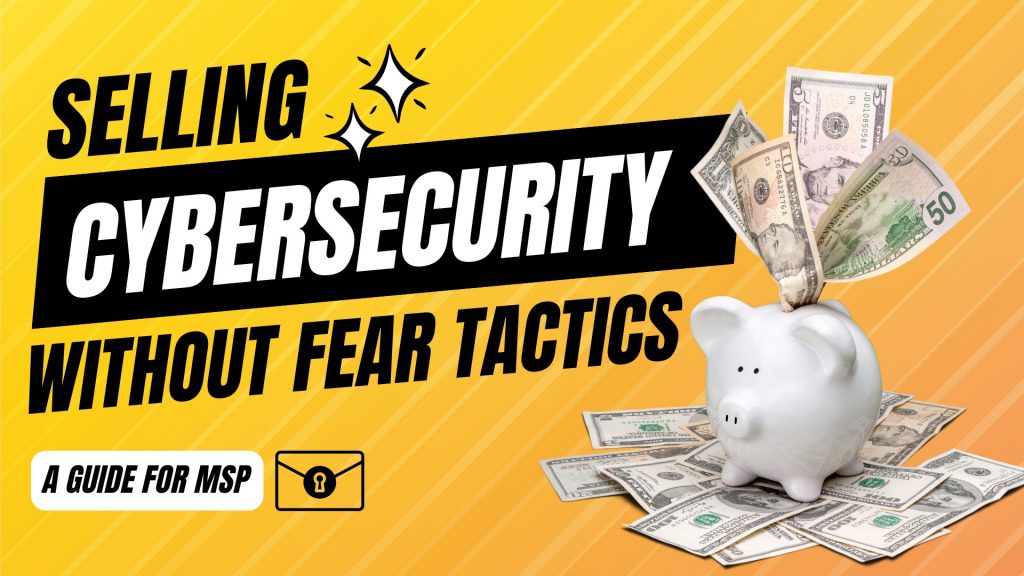
Let’s be honest—cybersecurity sells, and it’s tempting to lean on scary headlines.
“Hackers are targeting your business!”
“Ransomware could wipe out your data!”
While technically true, fear-based selling wears thin. It breeds skepticism, fatigue, and often ends in “I’ll think about it” instead of a sale.
So, how do you sell cybersecurity in a way that’s effective, trust-building, and value-driven?
Let’s dive in.
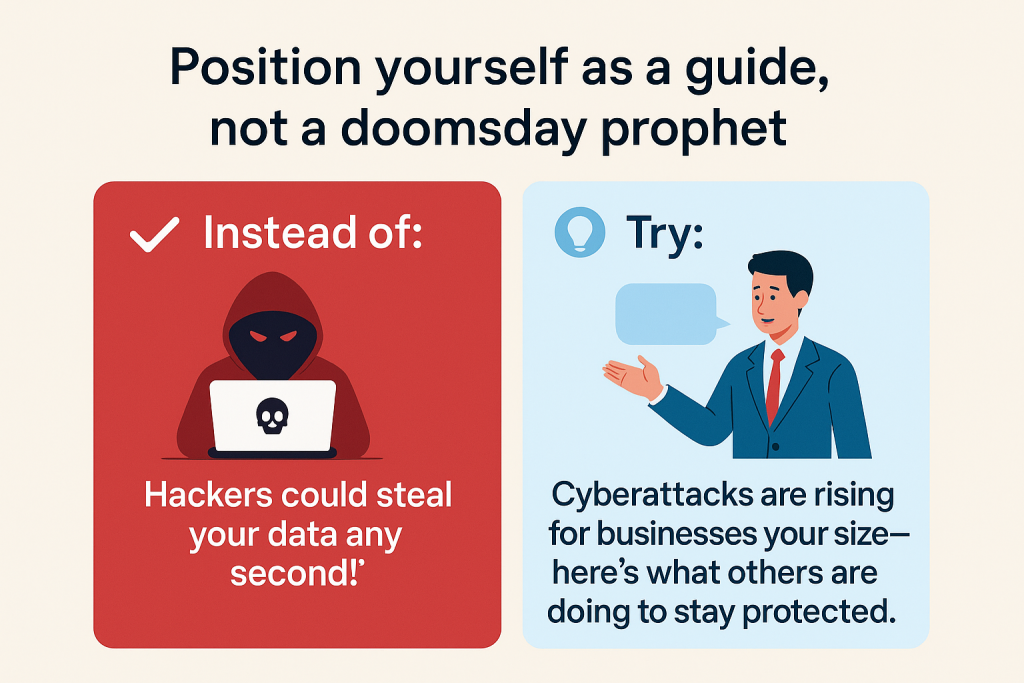
Step 1: Focus on Trust, Not Terror
Clients—especially SMBs—aren’t looking for horror stories. They want:
- To understand risk, not panic over it
- A clear solution they can afford
- Confidence that you’ve got them covered
Position yourself as a guide, not a doomsday prophet.
✅ Instead of: “Hackers could steal your data any second!”
💡 Try: “Cyberattacks are rising for businesses your size—here’s what others are doing to stay protected.”
🔗 According to Cybersecurity Ventures, global cybercrime costs will hit $10.5 trillion annually by 2025.
(Source: Cybersecurity Ventures)
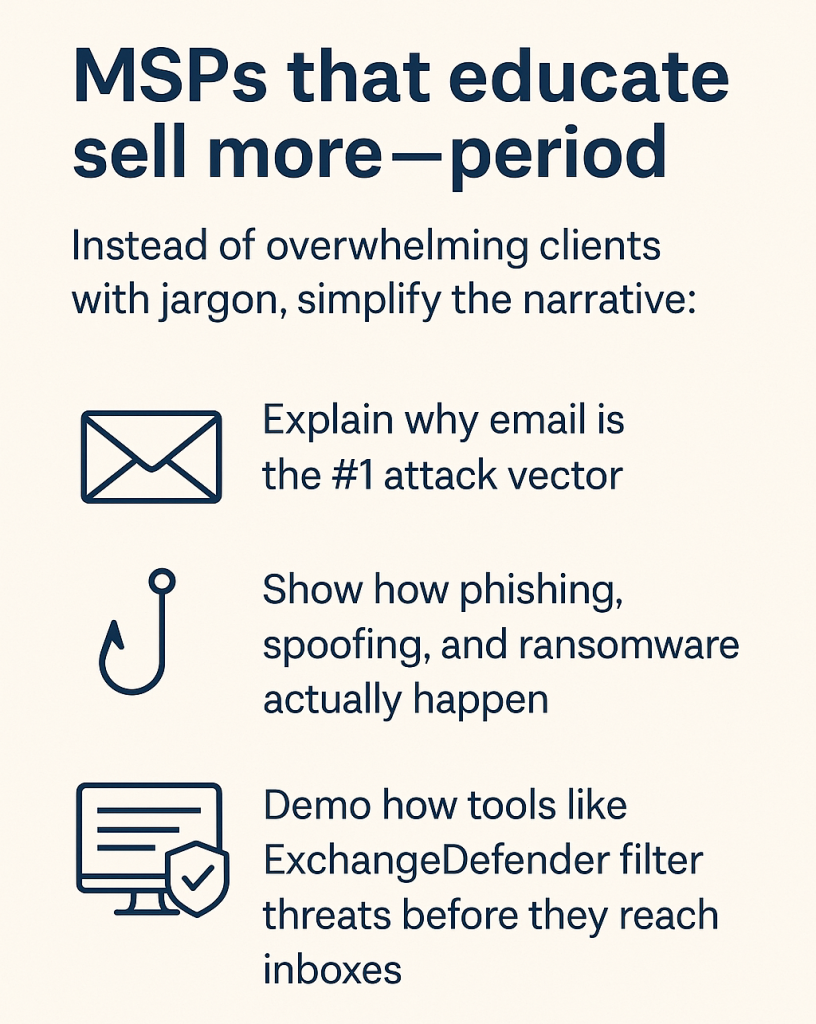
Step 2: Lead with Education
MSPs that educate sell more—period.
Instead of overwhelming clients with jargon, simplify the narrative:
- Explain why email is the #1 attack vector
- Show how phishing, spoofing, and ransomware actually happen
- Demo how tools like ExchangeDefender filter threats before they reach inboxes
🎯 Use visuals, infographics, or even real (anonymized) examples from recent incidents.
🔗 75% of organizations around the world experienced a phishing attack in 2023
(Source: Proofpoint 2023 State of the Phish Report)
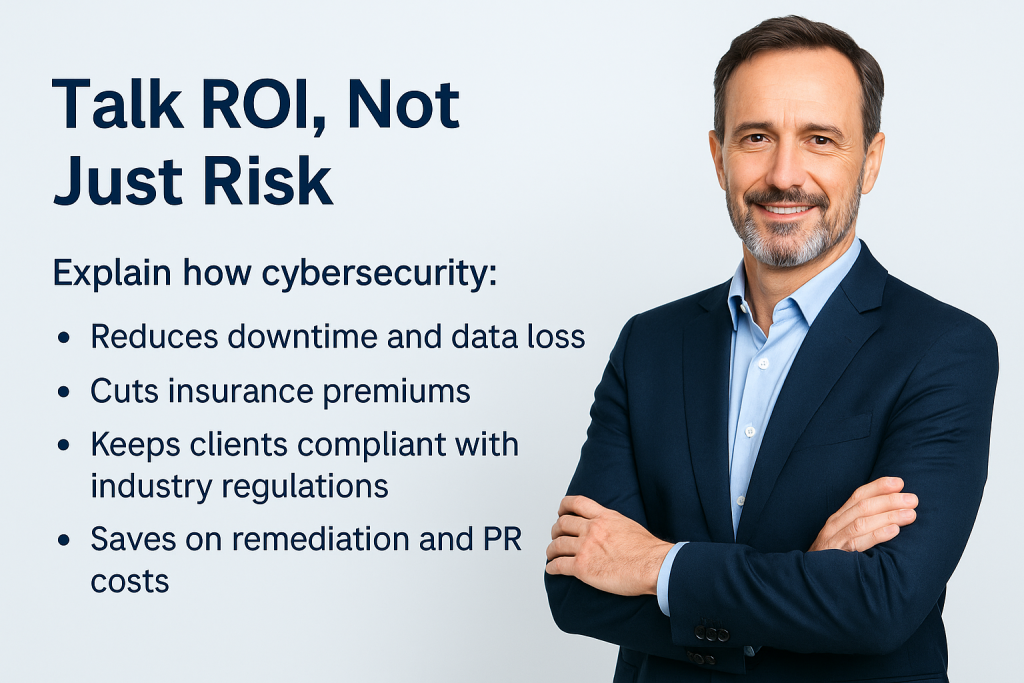
Step 3: Talk ROI, Not Just Risk
Security isn’t just about prevention—it’s about business continuity and saving money in the long run.
Explain how cybersecurity:
- Reduces downtime and data loss
- Cuts insurance premiums
- Keeps clients compliant with industry regulations
- Saves on remediation and PR costs
🛠 Example: “Email continuity through ExchangeDefender means even during outages or attacks, your team stays productive and your business doesn’t lose momentum.”
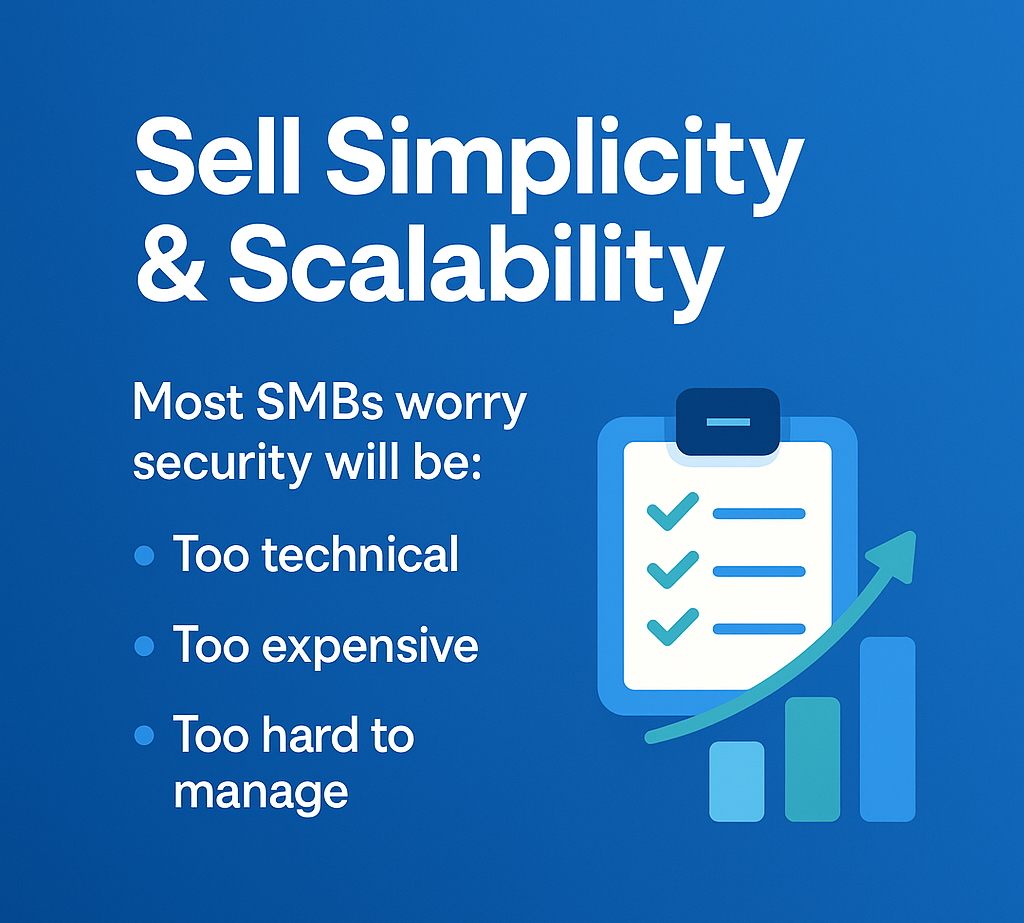
Step 4: Sell Simplicity & Scalability
Most SMBs worry security will be:
- Too technical
- Too expensive
- Too hard to manage
Reassure them by offering packaged, easy-to-deploy solutions like ExchangeDefender, which include:
- Email Security
- Spear phishing Training
- Email Outage Protection
- Encryption
- Secure File Sharing
You’re not just selling a tool—you’re offering peace of mind as a service.
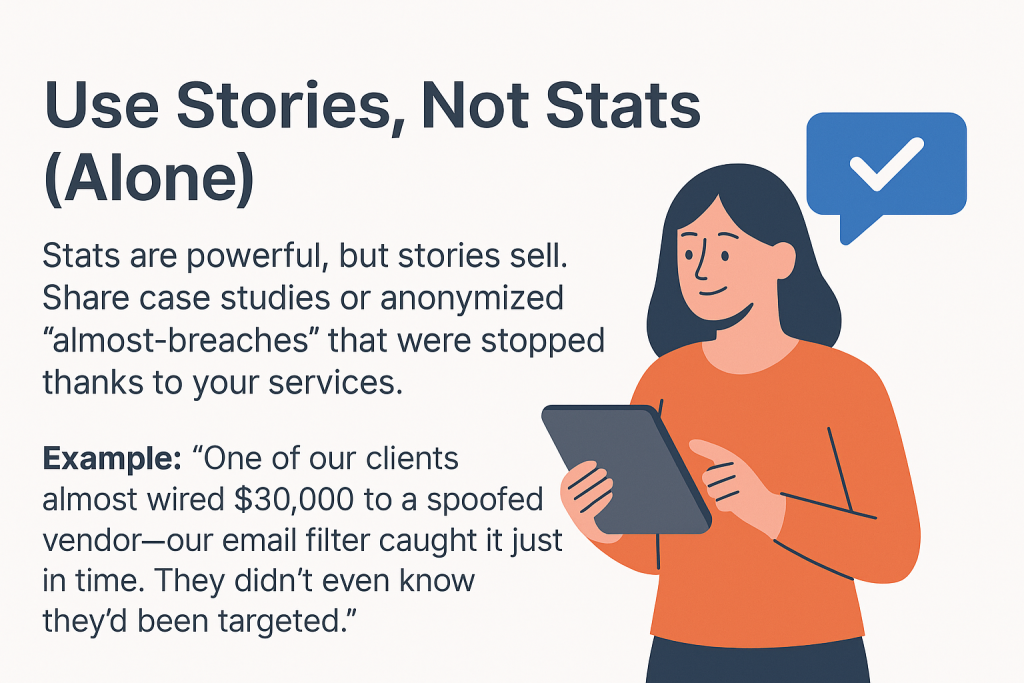
Step 5: Use Stories, Not Stats (Alone)
Stats are powerful, but stories sell. Share case studies or anonymized “almost-breaches” that were stopped thanks to your services.
Example:
“One of our clients almost wired $30,000 to a spoofed vendor—our email filter caught it just in time. They didn’t even know they’d been targeted.”
That sticks way more than a pie chart ever could.
Want to show your clients you’re not just selling—you’re protecting?
👉 Let us help you white-label powerful email security, make it easy to deploy, and even easier to sell.
🔗 Learn more about becoming a partner: https://www.exchangedefender.com/partners
Watch Out: New Norton LifeLock Phishing Scam Targets Inboxes Nationwide
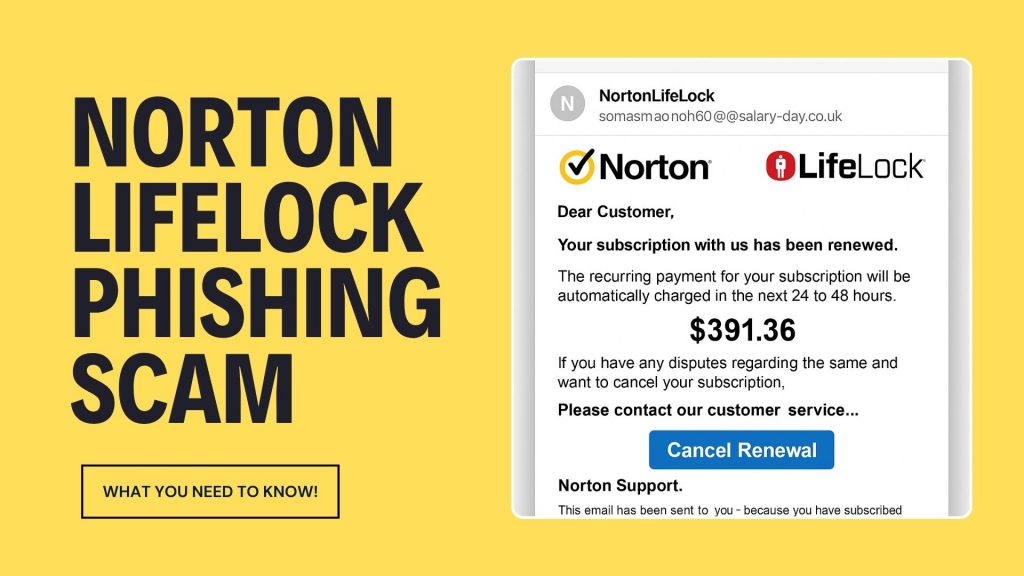
Email scams are getting bolder, and the latest one impersonating Norton LifeLock is making waves across inboxes everywhere. If you or your clients have received a suspicious email about a Norton subscription renewal or refund, here’s what you need to know—and why it matters.
🚨 What the Scam Looks Like
This phishing campaign is cleverly designed to mimic official Norton communications. The email usually warns of a pending charge or a renewal for Norton LifeLock services you never signed up for. Some versions say the charge is already complete, encouraging panic.
It may include:
- Official-looking logos and invoice PDFs
- Toll-free numbers to “cancel” the subscription
- Links that direct you to phishing pages
🤔 Why It Works
Scammers know how to create urgency. These emails often claim you’re being billed hundreds of dollars, prompting victims to call the provided number or click a cancellation link. Once on the phone, scammers may:
- Request remote access to your computer
- Ask for banking credentials to “process a refund”
- Install malware or steal sensitive data
🛡️ How to Protect Your Organization
ExchangeDefender recommends taking the following actions to stay safe:
- Never call phone numbers listed in suspicious emails
- Avoid clicking links or downloading attachments
- Report emails that look off – even if they seem to come from a known brand
- Enable 2FA wherever possible
If you’re using ExchangeDefender’s advanced phishing protection, our system is already working behind the scenes to stop these attacks before they hit your inbox.
MSPs, Take Note
This scam isn’t just a one-off – it’s part of a growing trend targeting businesses through brand impersonation. If you’re an MSP, we recommend sharing this post with clients and ensuring email continuity is part of your disaster recovery planning.
With ExchangeDefender’s LiveArchive, even if a phishing email triggers an outage or breach, business communication can continue seamlessly.
🔎 Learn More
Stay informed, stay secure. Read Norton’s official scam alert page here or contact ExchangeDefender support if you need help tightening your phishing defenses.
Have questions or want to beef up your email security stack? Try ExchangeDefender PRO! Contact us today.
Stay safe out there!
ExchangeDefender — Email Security, Backup & Continuity Built for Business.



